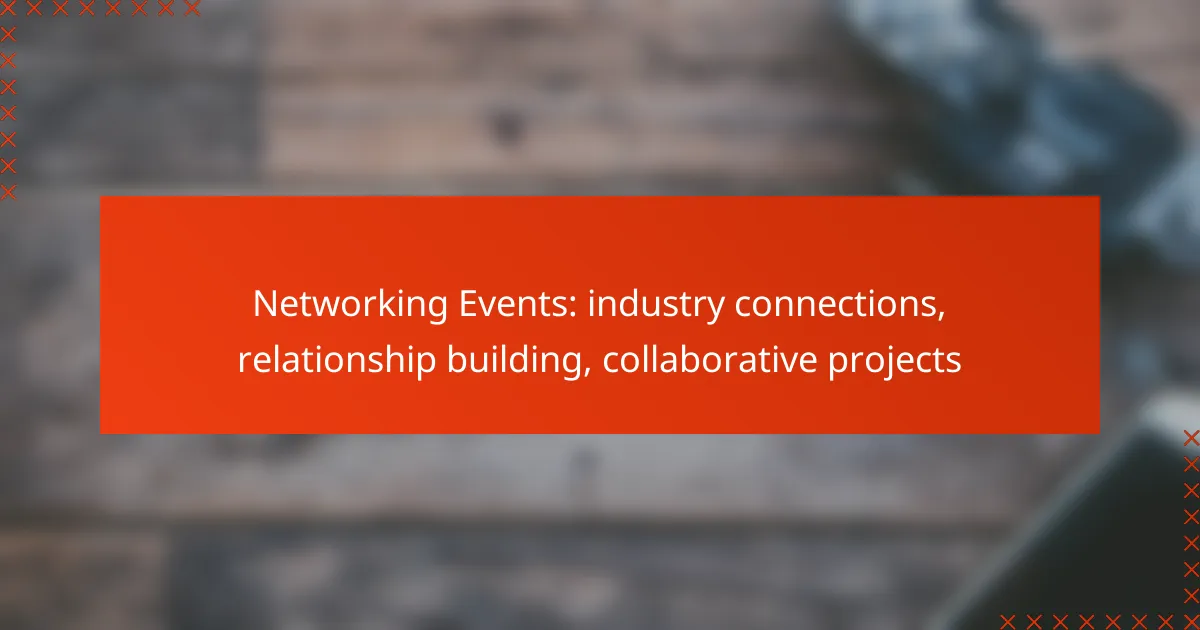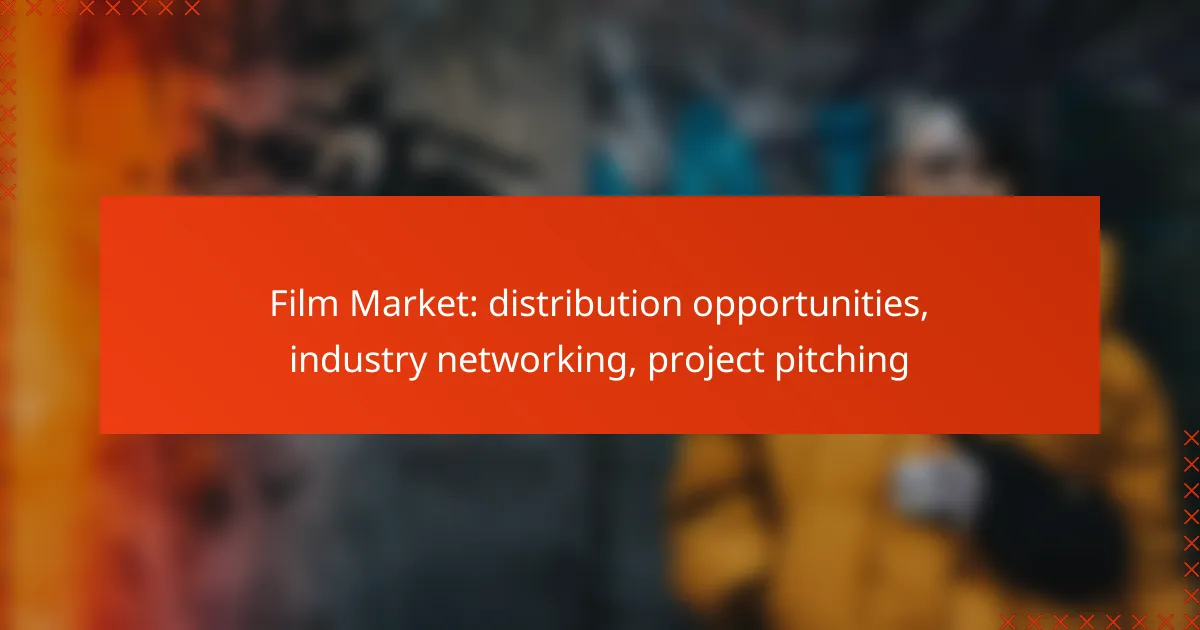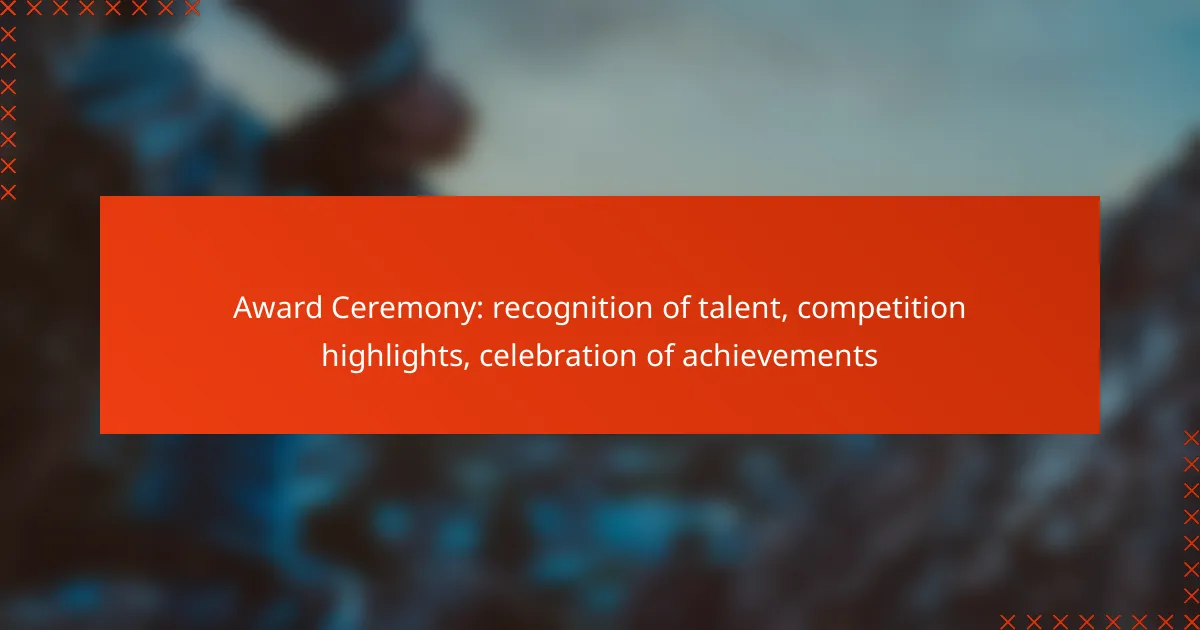Networking events are essential for fostering industry connections and building meaningful relationships that can lead to collaborative projects. By attending these gatherings, you can gain insights into current trends and enhance your professional growth. With strategic preparation, you can maximize your opportunities and make a lasting impact in your field.
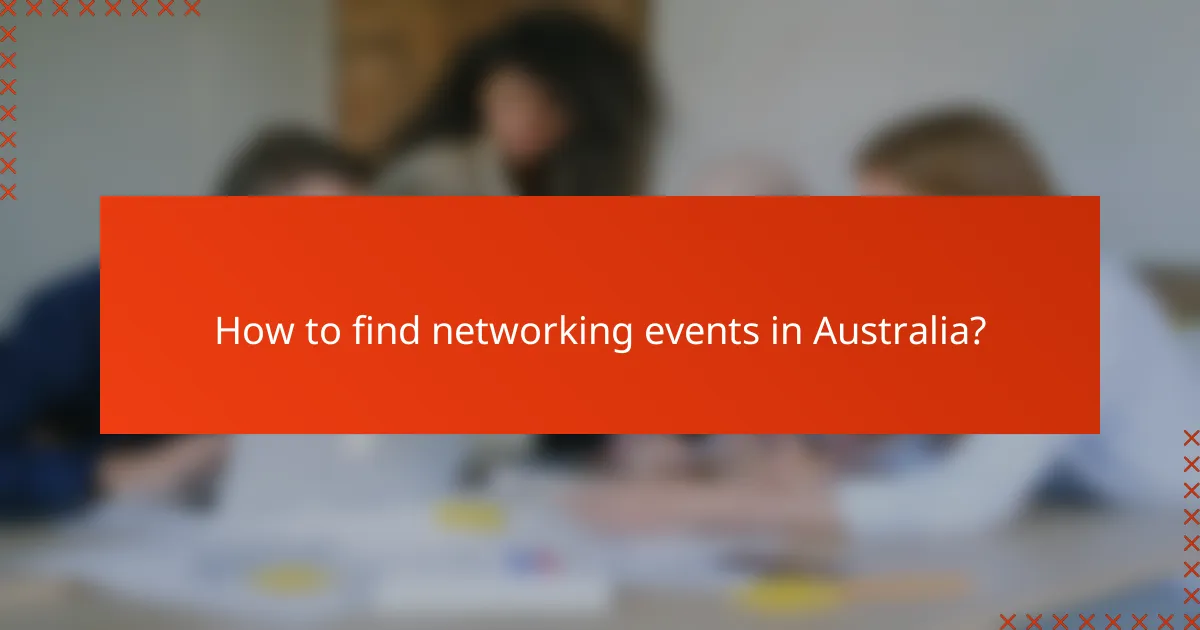
How to find networking events in Australia?
To find networking events in Australia, utilize online platforms that specialize in event listings. These resources can help you identify opportunities to connect with industry professionals and build valuable relationships.
Eventbrite for local listings
Eventbrite is a popular platform for discovering local networking events across Australia. You can search by location, date, and category to find events that suit your interests. Many events are free or have a nominal fee, making it accessible for various budgets.
When using Eventbrite, consider setting up alerts for specific keywords related to your industry. This way, you’ll receive notifications about new events that match your criteria, ensuring you never miss an opportunity.
Meetup for industry-specific gatherings
Meetup is an excellent resource for finding industry-specific networking gatherings in Australia. You can join groups focused on your profession or interests, allowing you to meet like-minded individuals and expand your network.
To maximize your experience, actively participate in discussions and attend events regularly. This engagement can lead to collaborative projects and deeper relationships within your industry.
LinkedIn Events for professional networking
LinkedIn Events is a feature that allows professionals to create and join networking events tailored to their industries. You can filter events based on your connections and interests, making it easier to find relevant opportunities.
When attending LinkedIn Events, ensure your profile is updated and reflects your professional brand. Engaging with attendees before and after the event can help solidify connections and open doors for future collaborations.
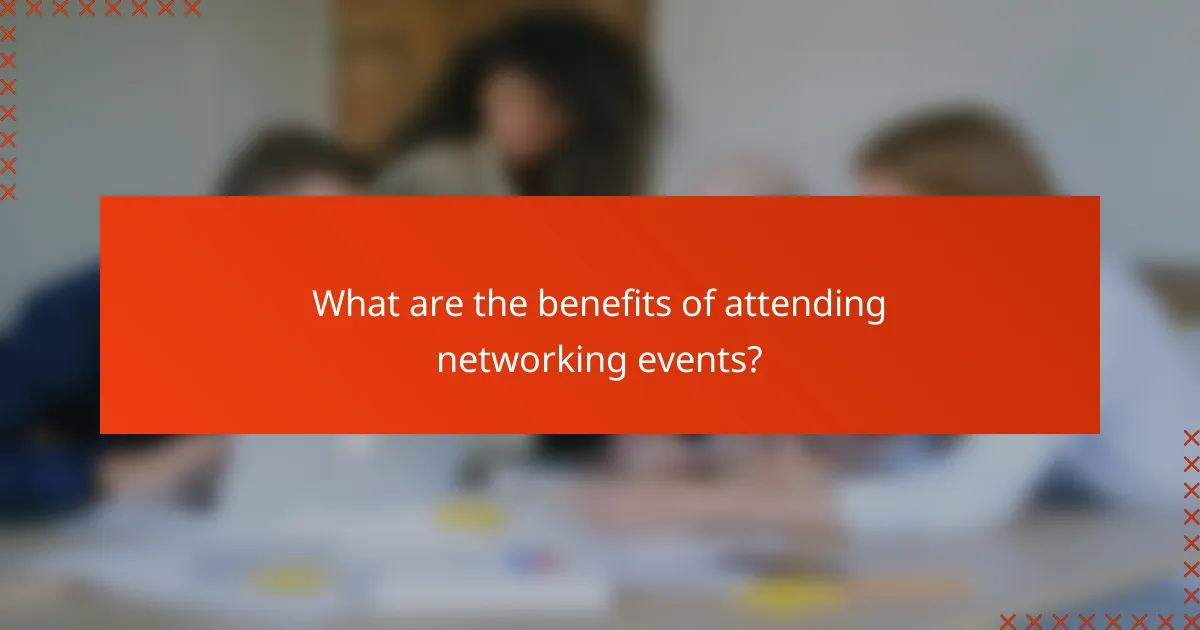
What are the benefits of attending networking events?
Attending networking events offers numerous advantages, including the opportunity to establish valuable industry connections, enhance collaboration prospects, and gain insights into current trends. These benefits can significantly impact your career and business growth.
Building industry connections
Networking events are ideal for meeting professionals from your industry, allowing you to forge meaningful relationships. Engaging with peers, potential clients, and industry leaders can lead to referrals, partnerships, and mentorship opportunities.
To maximize your connection-building, prepare a concise elevator pitch about yourself and your work. Follow up with new contacts after the event to reinforce your relationship and explore potential collaborations.
Enhancing collaboration opportunities
Networking events create a platform for discussing collaborative projects that can benefit all parties involved. By sharing ideas and resources, you can identify synergies that may not have been apparent before.
Consider attending events that focus on specific themes or sectors relevant to your work. This targeted approach increases the likelihood of meeting individuals who share your interests and goals, facilitating productive partnerships.
Gaining industry insights
Participating in networking events allows you to stay informed about the latest trends and developments in your field. Engaging in conversations with industry experts can provide you with valuable perspectives and knowledge that can enhance your professional expertise.
Take advantage of panel discussions, workshops, and Q&A sessions at these events to gather insights. Additionally, actively listening to others can help you identify emerging challenges and opportunities within your industry.
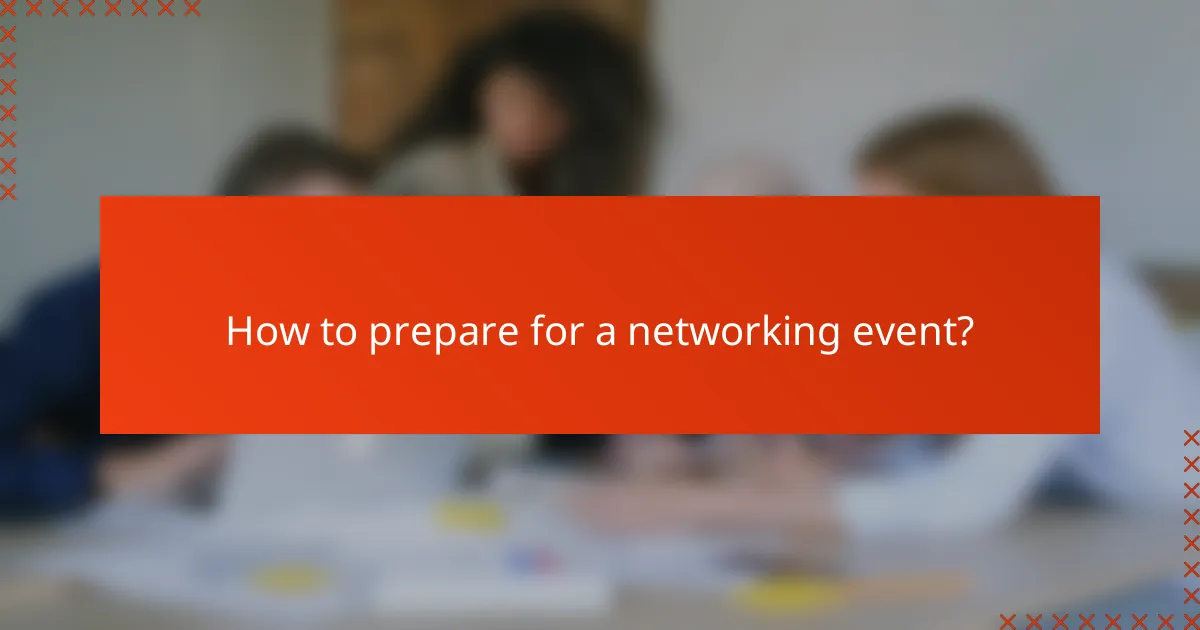
How to prepare for a networking event?
Preparing for a networking event involves strategic planning to maximize your opportunities for industry connections and relationship building. Focus on understanding who will be there, crafting your introduction, and ensuring you have the right materials to make a lasting impression.
Research attendees and speakers
Before attending, gather information about the attendees and speakers. Look for their professional backgrounds, current projects, and areas of expertise. This knowledge will help you identify potential connections and tailor your conversations to their interests.
Utilize platforms like LinkedIn to view profiles and recent activities. Make a list of key individuals you want to meet, which can guide your interactions during the event.
Prepare an elevator pitch
An elevator pitch is a brief, persuasive speech that summarizes who you are and what you do. Aim for a duration of around 30 seconds to one minute, focusing on your unique value proposition and how it relates to the audience.
Practice your pitch to ensure it sounds natural and confident. Tailor it to different contexts or audiences, emphasizing aspects that resonate with specific individuals or groups you may encounter.
Bring business cards
Business cards are essential tools for networking, providing a tangible way to share your contact information. Ensure your cards are up-to-date, clearly designed, and include your name, title, company, and relevant contact details.
Distribute your cards during conversations, but do so thoughtfully. Offer them when someone expresses interest in your work or after a meaningful exchange, rather than handing them out indiscriminately.
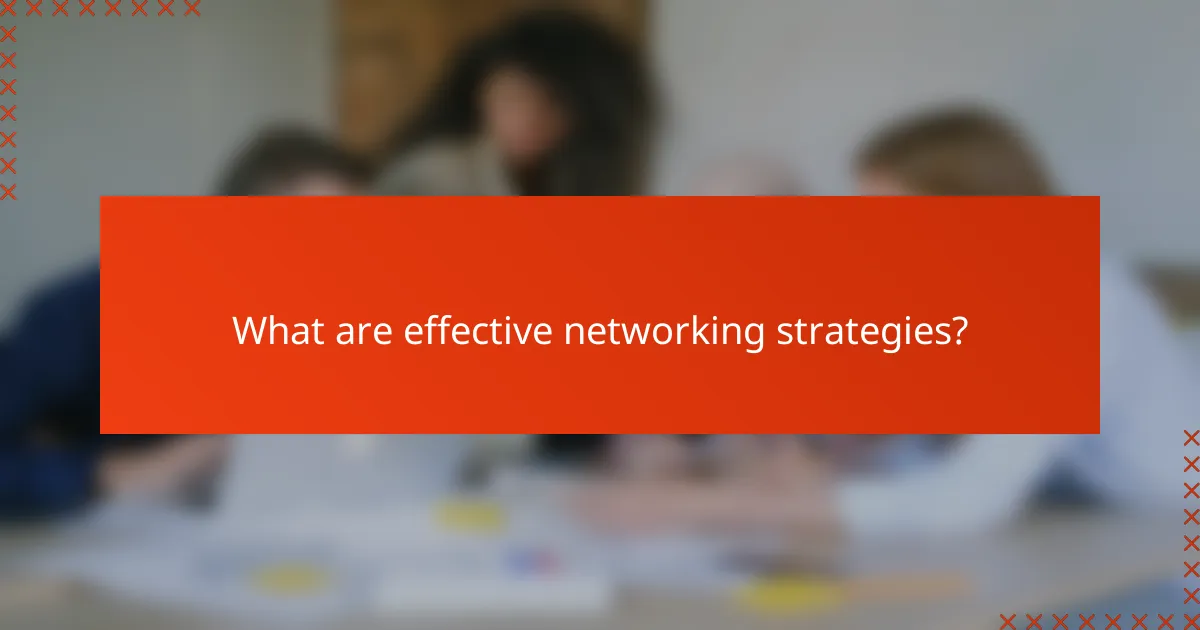
What are effective networking strategies?
Effective networking strategies focus on building genuine relationships and fostering collaborative opportunities. Prioritizing active listening, timely follow-ups, and leveraging social media can significantly enhance your networking success.
Active listening techniques
Active listening is crucial in networking as it demonstrates genuine interest in others. Techniques include making eye contact, nodding, and summarizing what the other person has said to confirm understanding. This not only builds rapport but also encourages deeper conversations.
To practice active listening, try to ask open-ended questions that invite elaboration. For example, instead of asking, “Did you like the event?” you might ask, “What did you find most valuable about the event?” This approach fosters more meaningful dialogue.
Follow-up communication
Following up after a networking event is essential for maintaining connections. A quick email or message expressing appreciation for the conversation can reinforce your interest and keep you top-of-mind. Aim to send your follow-up within a few days to ensure it feels timely.
When crafting your follow-up, personalize it by referencing specific topics discussed during your conversation. This shows attentiveness and can lead to future collaboration opportunities. Consider scheduling a coffee meeting or a virtual chat to deepen the relationship.
Utilizing social media
Social media platforms like LinkedIn are powerful tools for networking. They allow you to connect with industry professionals, share insights, and stay updated on trends. Regularly engaging with your connections through comments and shares can help solidify relationships.
To maximize your social media presence, ensure your profile is complete and reflects your professional brand. Join relevant groups and participate in discussions to expand your network. Remember to balance online interactions with face-to-face meetings for a well-rounded approach.
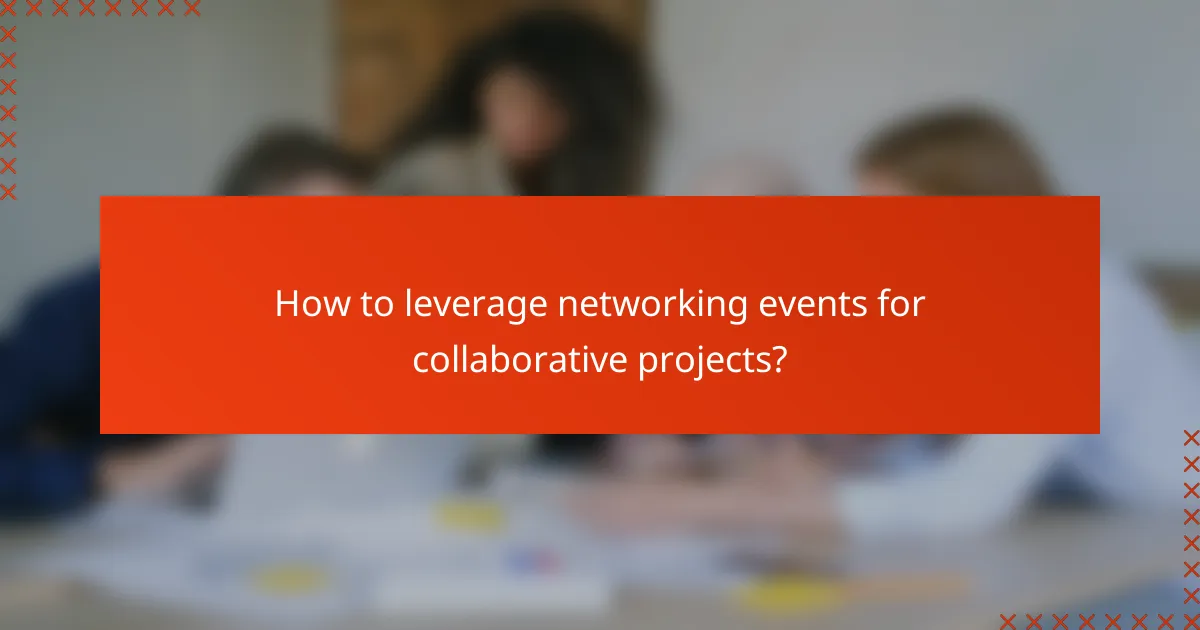
How to leverage networking events for collaborative projects?
Networking events are valuable opportunities to connect with potential collaborators for projects. By engaging with industry professionals, you can identify partners who share your goals and interests, leading to fruitful collaborations.
Identifying potential partners
To identify potential partners at networking events, focus on attendees who complement your skills and expertise. Look for individuals or organizations that have a track record of successful projects in your field or share similar values and objectives.
Utilize name tags and conversation starters to gauge interest and expertise. Consider creating a brief elevator pitch that outlines your project ideas and what you seek in a partner, making it easier to initiate meaningful discussions.
Discussing project ideas
When discussing project ideas, be clear and concise about your vision and objectives. Share your goals and the specific contributions you envision from potential partners, fostering a collaborative atmosphere.
Encourage open dialogue by asking questions and inviting feedback. This not only helps refine your project concept but also demonstrates your willingness to incorporate others’ insights, which can strengthen the partnership.
